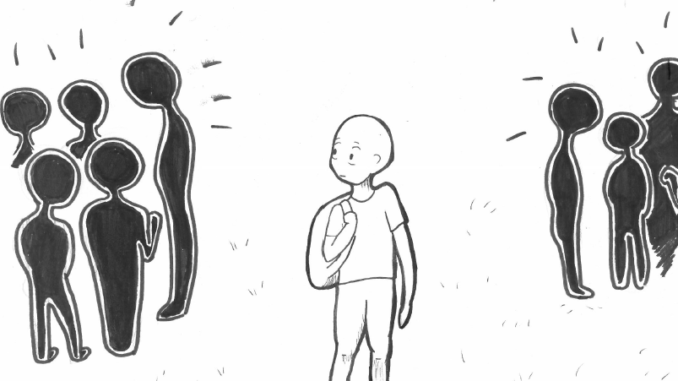
By Charlotte Powers
For a school that is considered one of the most liberal colleges in the country, a majority of Lewis & Clark students have no interest in developing political activity here on campus. Upon first glance, LC students radiate liberalism and political activism, considering the unofficial student uniform consists of laptops, water bottles and mailbox lockers covered in progressive stickers, jean jackets stitched with “Save the Parks” patches, Kånken backpacks bathed in “You Can’t Comb Over Racism” and “Heehaw for Donkeys” pins and socks that read “More Feminism, Less Bullshit.” While these style choices certainly represent a student’s stance on political issues, they are not representative of the individual’s lack of political efficacy and the little to no activity they have taken to advocate the issues they “support.”
As co-president of LC College Democrats, I have noted a few examples of how students choose to channel liberalism through branding rather than participation. One example is reflected in the attendance for our club’s weekly meetings and events. In our meetings, we discuss the latest political news, brainstorm ideas for future club activities, share internship opportunities and host guests from progressive organizations in Oregon. With a club that has over 200 email recipients, only three to five students attend weekly meetings on a regular basis.
Last semester, LC College Democrats hosted an event titled, Do Our Representatives Really Represent Us?, where three LC professors and Oregon Attorney General Ellen Rosenblum discussed the lack of racial, gender and political ideological diversity in national and state government. Unsurprisingly, only 20 to 25 students attended the event with the majority of participants coming from the law school.
I have considered factors that could negatively affect weekly meeting and event attendance: students in college are incredibly busy, many upperclassmen live off campus, some students work part-time, etc. Even so, I am confident to say that if a student did have the time to attend our meetings, the likelihood of them choosing to attend is unlikely. This is because LC students would rather talk politics than walk over to Templeton one night a week and collectively work to make political activity available for students and faculty. It may look like LC students scream progressivism and political action, but this appearance hides how our community can be as uninvolved and apathetic as the general American electorate.
I would like to explain one thing: I love the stickers, the patches, the pins and the socks I see every day; hell, I have all these things. I appreciate the political discussion that takes place both inside and outside the classroom setting. Nevertheless, these components are the least LC students can do to be political and promote the issues they believe in; I do not believe that these ingredients alone can combat the bigoted ideologies that plague our nation. LC students succeed in making their political opinions loud and clear but they fail to transform these voices into effective action.
Subscribe to the Mossy Log Newsletter
Stay up to date with the goings-on at Lewis & Clark! Get the top stories or your favorite section delivered to your inbox whenever we release a new issue.

Great observation, it does sound like a cliche, but the future truly rests in the hands of today’s youth. Political interest has to evolve beyond the branding and make it into the trenches where activism takes place, and ultimately at the ballot box.